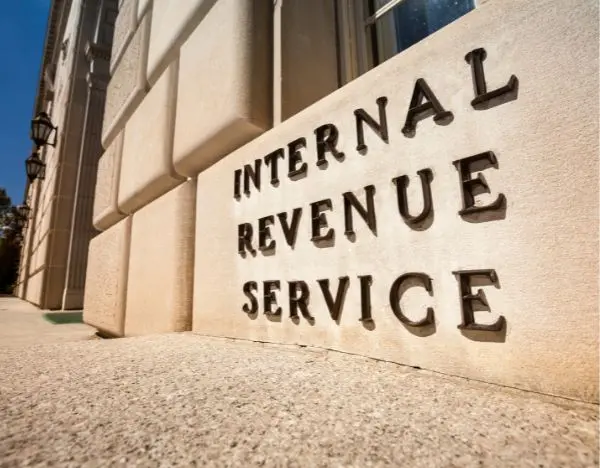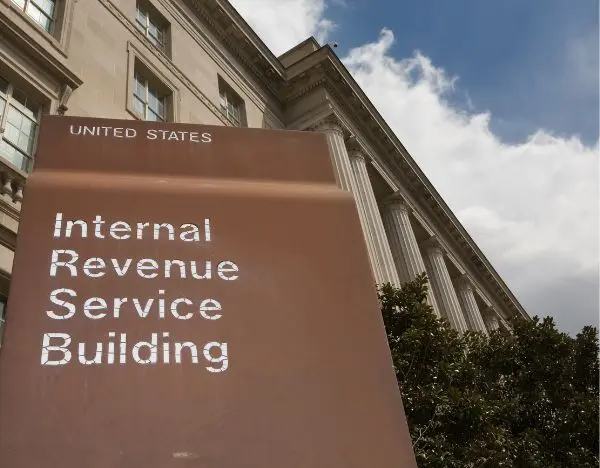
The Internal Revenue Service (IRS) is known for collecting taxes, but it also has a powerful criminal investigation division. While most tax issues are handled civilly, certain circumstances can trigger a criminal investigation. At Varghese & Associates, P.C., we believe it's crucial for taxpayers to understand when and why the IRS might pursue criminal charges.

The Internal Revenue Service (IRS) enforces tax laws in the United States. While most tax issues are handled through civil procedures, certain actions can become criminal.
The IRS takes intentional tax evasion very seriously. This includes:
Submitting tax returns with knowingly false information can lead to criminal charges. This might involve:
While simply forgetting to file once might not trigger a criminal investigation, a pattern of non-filing, especially for high-income individuals, can lead to criminal charges.
Businesses that fail to properly withhold, report, or pay employment taxes may face criminal prosecution. This includes:
Not all tax errors or even intentional misrepresentations lead to criminal charges. The IRS typically pursues criminal cases when:
Recognizing the signs of an IRS criminal investigation is crucial for protecting your rights and interests. While the IRS doesn't always make it obvious that you're under investigation, there are several red flags to watch out for:
If IRS special agents show up at your home, office, or place of business unannounced, this is a strong indication of a criminal investigation. These agents typically work in pairs and will identify themselves with credentials. Remember:
If you receive a summons or subpoena from the IRS requesting specific financial documents, bank records, or other information, this could indicate an ongoing criminal investigation. These legal documents often require you to:
The IRS may contact your employees, business partners, clients, or other associates to gather information. If you learn that the IRS has been asking questions about you or your business practices, it's a strong sign of an ongoing investigation.
Your bank or other financial institutions may start asking more questions about your transactions or request additional documentation. This could be a result of IRS inquiries or subpoenas.
If you suddenly find that your bank accounts or other assets have been frozen without explanation, this could be due to an IRS criminal investigation.
While not all audits lead to criminal investigations, unusually aggressive audit techniques or a sudden expansion of the scope of an audit could indicate that the examination has turned criminal.
In some cases, the IRS may send a "target letter" informing you that you're the subject of a criminal investigation. This is one of the clearest signs that you're under investigation.
Receiving a grand jury subpoena is a definite sign of a criminal investigation, as grand juries are only used in criminal matters.
If you notice any warning signs of an IRS criminal investigation, taking immediate and careful action is crucial. At Varghese & Associates, P.C., we recommend the following steps:
While feeling anxious when facing a potential IRS criminal investigation is natural, it's important to remain calm. Panicking can lead to poor decisions that may complicate your situation. However, this doesn't mean you should take the matter lightly. An IRS criminal investigation is a serious issue that deserves your full attention and careful handling.
One of your most important rights is the right to remain silent. If approached by IRS agents, politely inform them that you wish to speak with an attorney before answering any questions. Remember, anything you say can be used against you in court. It's always better to consult with a legal professional before engaging in any discussions with investigators.
In the face of a potential investigation, preserving all your financial records, tax returns, and related documents is crucial. Do not destroy or alter any documents, as this can lead to additional charges of obstruction of justice. If you're unsure about a document's relevance, consult an attorney before taking action. Proper document preservation can be crucial for your defense.
Do not attempt to handle an IRS criminal investigation on your own. Contact an experienced tax attorney immediately. Look for an attorney with specific experience in IRS criminal investigations. At Varghese & Associates, P.C., we have extensive experience in this area and can provide immediate assistance, guiding you through each step of the process.
It's wise to limit discussions about your case to your attorney. Friends, family, or business associates could potentially be called as witnesses, so maintaining confidentiality is crucial. With guidance from your attorney, conduct an internal review of your financial records and tax filings. This can help identify potential issues or discrepancies and aid in preparing a strong defense strategy.
While you shouldn't speak directly with investigators without legal counsel, cooperating through your attorney is often beneficial. Your legal representative can manage communications and negotiate on your behalf. In some cases, voluntary disclosure of tax issues before an investigation begins can mitigate potential criminal charges. However, this complex decision should only be made with legal advice.
Work closely with your attorney to understand and prepare for potential outcomes. This may include preparing for possible civil penalties, criminal charges, or negotiated settlements. Understanding the range of possibilities can help you make informed decisions.
As much as possible, maintain your regular routines. Drastic changes in your lifestyle or business operations might be seen as suspicious. At the same time, don't neglect your mental health. The stress of an IRS criminal investigation can be overwhelming, and seeking support from a mental health professional can be beneficial. Ensure that any professional you consult understands the need for confidentiality.
Dealing with potential IRS criminal charges can be overwhelming, but you don't have to face this challenge alone. At Varghese & Associates, P.C., we have the experience and experience to guide you through every step of the process. Contact us today for immediate assistance.
Attorney Advertising | Prior results do not guarantee a similar outcome. The information on this website is for general information purposes only. Nothing on this site should be taken as legal advice for any individual case or situation. This information is not intended to create, and receipt or viewing does not constitute, an attorney-client relationship. This site is protected by reCAPTCHA and the Google Privacy Policy and Terms of Service apply.